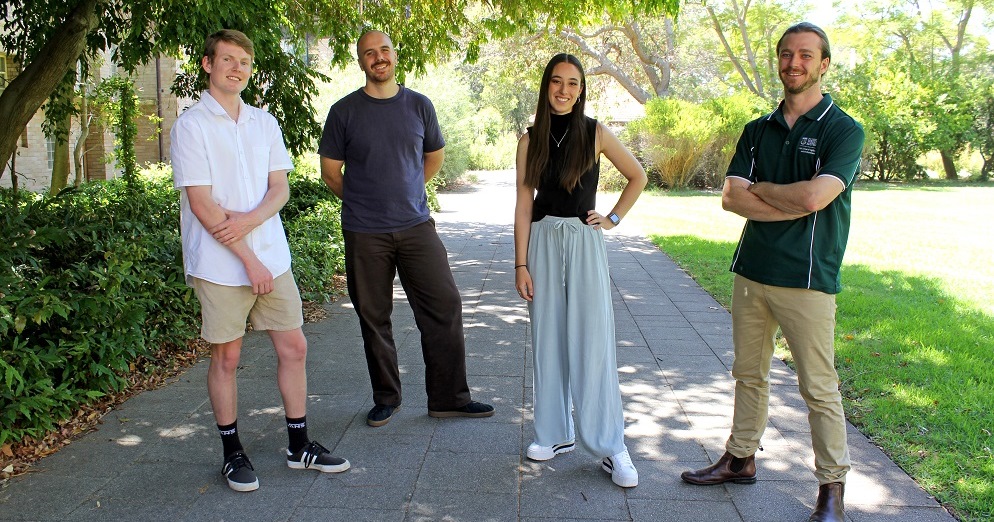Embarking on a PhD journey may seem like a daunting prospect, but for these four fledgling UWA researchers, the future is bright.
Ruby Wiese recently received the AW Howard Memorial Trust Research Fellowship, while James O’Connor, Alistair Hockey and George Mercer are recipients of the AW Howard Memorial Trust’s Tim Healey Memorial Scholarship.
Currently midway through his project, Mr O’Connor said the scholarship would significantly impact his research journey.
“It will provide me with the necessary financial support to further my research and invest in higher risk, higher reward research outputs in order to further scientific knowledge within the field,” he said.
Mr O’Connor is exploring innovative solutions to recover vital nutrients from food waste to create sustainable fertilisers for agriculture.

“My research involves a thorough comparison of various food waste valorisation products, such as compost, anaerobic digestate and acidified digestate, to determine their agronomic value,” he explained.
Mr Hockey is researching the genetic and genomic barriers between chickpea and its close wild relative Cicer echinospermum.
“I believe that my research can make a positive impact on food security in rapidly changing environments and in the conservation of an important wild species.”
Ms Wiese’s PhD is part of a larger AgriFutures-funded project aiming to develop prototype machinery for harvesting subterranean clover seed.
The new design will ideally overcome the inefficiencies and environmental damage problems associated with the current harvest process.
“This Fellowship is particularly meaningful, because AW Howard pioneered the use of sub clover as a sown pasture legume,” she said.
Now 18 months into his PhD within the ARC Training Centre for Transformation of Australia’s Biosolids Resource, Mr Mercer said his project dealt with the ‘tricky business’ of sequestering soil carbon.
“Biosolids (the solid by-product of the wastewater treatment process) come packed with carbon and nutrients that trickle-feed the entire plant-soil system,” he said.
“By assessing the biological response of plants and soil microbes to transformed biosolid products, we can help to identify and utilise pathways that are most likely to store carbon in the soil for the long term.”
Read the full issue of the Winter 2023 edition of Uniview [PDF 2.7Mb]. The Uniview accessible [PDF 2.9Mb] version is also available.
